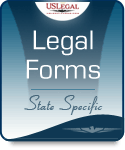Pennsylvania Financial Forms - Pennsylvania Financial Form

Pennsylvania Annual Financial Checkup Package

Fair Credit Reporting Act Package

Pennsylvania Accountant Package
Pennsylvania Financial Statement Form Categories Pa Form Financial
Easy Order
Pennsylvania (PA) Power of Attorney Documents
Pennsylvania Power of Attorney documents are legal documents that give a person (known as the "Agent" or "Attorney-in-Fact") the authority to make decisions on behalf of someone else (known as the "Principal") in Pennsylvania. These documents are designed to help ensure that someone can manage the affairs of another person if they become unable to do so themselves. The Agent can be given the power to handle financial matters, make healthcare decisions, or both, depending on the specific Power of Attorney document. It is important to carefully consider who you choose as your Agent and clearly outline their powers and responsibilities in the document. Additionally, Pennsylvania has specific rules and requirements for creating and executing Power of Attorney documents, so it is recommended to consult with an attorney to ensure compliance with the law.
Pennsylvania Real Estate Power of Attorney
A Pennsylvania Real Estate Power of Attorney is a legal document that allows someone, often called the "principal," to appoint another person, referred to as the "agent," to act on their behalf in real estate matters. This means that the agent will have the authority to buy, sell, lease, or manage the principal's real estate properties in Pennsylvania. It is important to note that the agent must act in the best interest of the principal and follow any guidelines or limitations stated in the power of attorney document. The agent's power can be broad or limited, depending on what the principal specifies. It is necessary to have the power of attorney properly prepared, signed, and notarized to make it valid in Pennsylvania.
Pennsylvania Motor Vehicle Power of Attorney
In Pennsylvania, a Motor Vehicle Power of Attorney is a legal document that allows someone to act on your behalf when dealing with motor vehicle-related matters. This means that you can appoint someone you trust, like a family member or friend, to handle tasks such as registering a new vehicle, renewing license plates, or transferring car titles. The person you designate as your power of attorney will have the authority to sign documents, submit paperwork, and make decisions concerning your vehicle. This can be helpful if you are unable to be present or prefer someone else to handle these responsibilities for you.
How to Get Power of Attorney in Pennsylvania
To get Power of Attorney in Pennsylvania, follow these simple steps. First, decide who you want to appoint as your agent, someone you trust to make important decisions on your behalf. Next, create a Power of Attorney document, which should include your name, the agent's name, and clearly state the powers you want to give them. It's also important to have the document signed before a notary public and witnesses to make it legally valid. Make sure to store the original document in a safe place. Lastly, share a copy of the Power of Attorney with your agent, financial institutions, and relevant parties to ensure they have the authority to act on your behalf when needed.
Pennsylvania POA Requirements
In Pennsylvania, a Power of Attorney (POA) is a legal document that allows someone to make decisions on your behalf if you are unable to do so. To create a POA in Pennsylvania, you need to be at least 18 years old and of sound mind. You must also choose a trustworthy person to be your agent, who will make decisions according to your wishes. It is important to specify the powers you want to grant to your agent in the POA document, such as handling financial matters or making healthcare choices. The POA document must be signed by you and witnessed by two adults. Pennsylvania also recognizes different types of POA's, such as a durable POA that remains valid even if you become incapacitated. Keeping your POA document up to date and communicating your wishes to your agent are crucial in ensuring your interests are protected.




